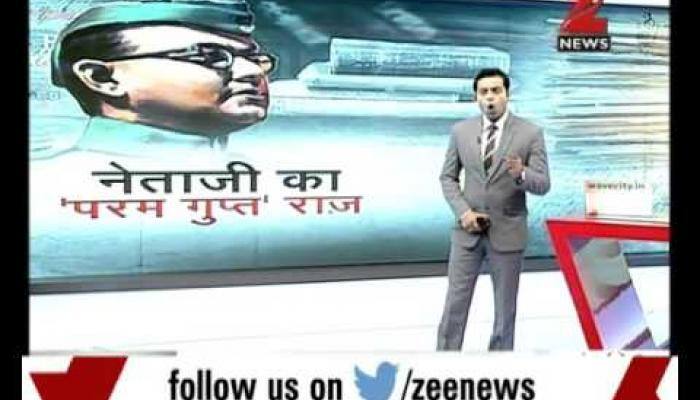New Delhi: Prime Minister Narendra Modi on Saturday unveiled 100 declassified documents on Netaji Subhash Chandra Bose, who raised an army to fight the British and whose death in an air crash continues to be a mystery even after seven decades.
PM Modi released digital copies of 100 files at the National Archives of India following the government's decision to declassify files on the freedom fighter. The files were released on the birth anniversary of Bose, who was more popularly addressed with the honorific Netaji.
PM also launched a webportal https://netajipapers.gov.in to release the digital version of the 100 files.
Here are a few revelations made by the declassification of the documents:
1. 'I want to sleep' were Netaji Subhash Chandra Bose's last words.
2. According to a Khosla Commission report, Bose died at Tethoku airfield in Taipeh (Formosa), currently in Taiwan on 18 August 1945. His body was cremated two days later.
3. On 20 August 1945, Netaji’s body was cremated and his ashes were carried to Tokyo in the beginning of September 1945.
4. The British government did not really believe that Bose was dead. Even for some months after the Japanese announced Netaji’s death, the British goverment continued to discuss ways of ‘dealing with him’.
5. The Indian government was “not inclined to favour” the bringing back of Netaji’s ashes kept in Renkoji temple, Tokyo “due to possible adverse reactions from members of Netaji’s family, as well as certain sections of the public, who refused to believe in his death in the plane crash in August, 1945”.
6. The Indian embassy in Tokyo pointed out that the temple authorities had a feeling that the Indian government was “indifferent” to its national hero who fought for the country’s independence.
7. According to a confidential report prepared by the home ministry in 1977, the Indian embassy was paying the temple authorities in Tokyo Rs 5000 a year for the safekeeping of the freedom fighter’s ashes.
8. The chief priest at the temple sought some kind of recognition in the form of a letter or a medal from the Indian government for the trouble he took to retain the ashes.
9. The Indian government paid Rs 6000 per month to Netaji’s daughter after his wife refused the offer. The payment was discontinued in 1965 after her marriage.
10. According to a letter written by historian Peter Simkins, Netaji's name was not in the British government’s list of war criminals but he was considered a traitor.


















